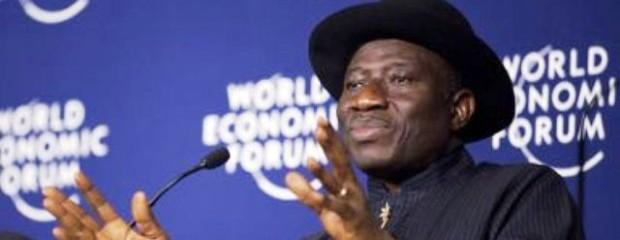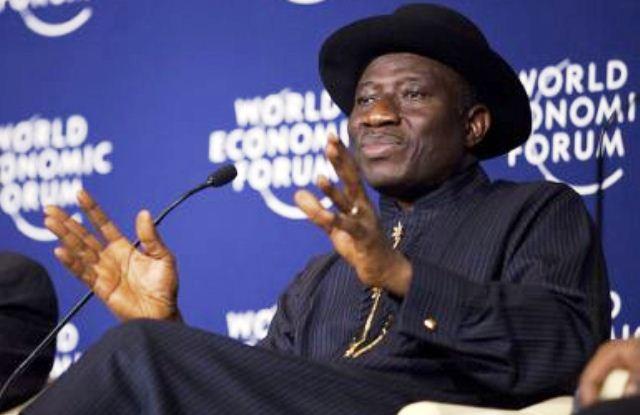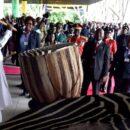How will WEF-Abuja tell the African growth story? – By Jolyon Ford


Nigerian President Goodluck Jonathan at WEF in 2013. Will Nigeria’s hosting succeed in framing the Africa Rising narrative in new and imaginative ways?
Consider two of contemporary Africa’s hallmarks. One (which resists attempts at hallmarking) is its great diversity. The continent is incorrigibly plural, it is large, and it contains multitudes of contradictions. Outsiders’ ignorance of that diversity is what typically frustrates so many Africans. Another oft-sung hallmark or trait, at least since the 2000s, is the perceived dynamism, confidence, optimism and assertiveness of the continent’s businesspeople, large and small.
Yet Africa-related business summitry arguably does the continent no favours. It can obscure the first trait (diversity) in a way that smacks of a lack of confidence (so belying the second trait).
This week the World Economic Forum (Africa) runs in Abuja, Nigeria (7-9 May).
I will put aside for now how the Forum’s website has, in the lead-up, mainly promoted pieces by Western businesspeople. I put this aside even though it is a touch frustrating that a piece with the title 7 reasons to be optimistic about Africa is written by a British executive, Lord Hastings. I put that aside since one cannot always sacrifice strategic nous for authenticity: these high-profile executives have a global audience; in any event their voices are arguably authentic since they have experience investing in or advising on Africa.
Yet in many other respects, summit agendas like this one arguably do the continent a disservice, at least on these two issues of diversity and confidence.
I did not happen to enjoy NoViolet Bulawayo’s acclaimed Zimbabwe novel We Need New Names as much as many of its reviewers did. Nevertheless, it was a relief that there was a new book on modern Zimbabwean-ness not written by one of the country’s white citizens. In the same way, “˜Africa Rising’ arguably needs new names, story-lines and story-tellers, even just at business-related summits.
This is because not every ounce of Africa’s potential can be captured in the sentence “˜but look at what the mobile phone sector has done!’ It is because the story must (or should) also be told by African-owned firms, not just ones that do well in Africa. It is also because while Mr Dangote and Mr Ibrahim are very successful African businessmen, theirs are not the only success stories worth telling; if they were, this would be a worrying thing, not something to be highlighted. If one goes to enough events, the impression is not of diversity and dynamism, but of sameness or singular achievement. This is misleading, and it is unhelpful.
In 2012 I went to three successive Africa investment events where a certain Ethiopian shoe-making entrepreneur was guest speaker or panellist. Intended to highlight Africa’s home-grown manufacturing potential (and the potential of its women businesspeople), the repeated use of her story as an example had, at least to my mind, quite the opposite effect.
So much ground still remains to be recovered in how the world tells and hears the continent’s stories (and acts on them). The global media and policy reaction to the mass abduction of schoolgirls in Nigeria has arguably been fairly muted and slow. One could even interpret this as bordering on a form of racism. For those in Africa fighting stereotypes of any sort (from investor attitudes to patronising media ones), more effort needs to go into ways of confidently communicating diversity.
In her book, Bulawayo writes of “forever waiting in the air like the flags of unsung countries.” It is not just fair to the unsung champions of Africa Rising (or to the victims of its parallel events and the bearers of its persistent problems) that there should be greater richness and variety in the way that the continent’s story is told. It is imperative to sustaining necessary credibility about the continent’s attractiveness to investment in a competitive, cautious, capital-starved world.
Jolyon Ford blogs at Private Sector – Public World






